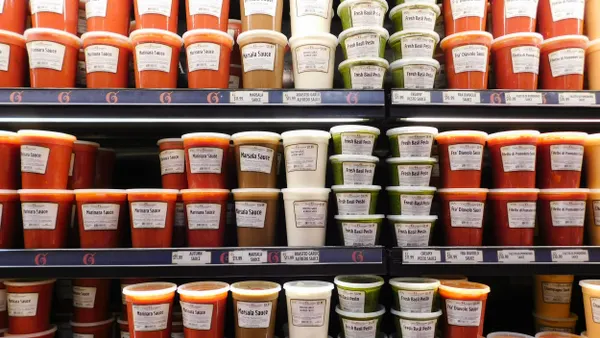Dive Brief:
-
Wealthy millennials are increasingly shopping at dollar stores, saving these businesses from the woes many retailers have seen in recent quarters, Reuters reports.
-
The number of heads of households shopping at dollar stores under 35 years-old earning more than $100,000 a year increased 7.1% between 2012 and 2015, compared to 3.6% at all retail stores, according to Nielsen research cited by Reuters.
-
Some 29% of millennial dollar store consumers earn over $100,000 annually and accounted for about 25% of sales at those stores, according to market research firm NPD's Checkout Tracking, also cited by Reuters.
Dive Insight:
Dollar stores are widely seen as a challenge to the likes of Target and Wal-Mart, which makes Wal-Mart’s recent exit from its Walmart Express project puzzling, given the success of the format. Experts say Wal-Mart most likely gave up on the 10,000 to 15,000 square-foot stores that competed with dollar store chains and drugstore retailers in more residential and even urban areas because the format didn't immediately show results.
Dollar stores' urban locations are also more convenient to many shoppers, especially younger ones. And this number of stores is growing rapidly, according to Reuters, with Dollar General operating more than 12,700 stores in the United States and Dollar Tree running around 14,000 stores in the U.S. and Canada.
The stores have generally eased the “dollar” restriction on their prices, which can range widely but still are often lower than even Wal-Mart. Millennials, even those who can afford to spend more, are apparently attracted to these low prices on commodity goods and are tolerant of the no-name private label brands in dollar stores that usually sport much-lower prices.
"As years passed and my family grew, I realized I could buy the same items at a dollar store for a fraction of the price," Victoria Marin, a 35-year old author and educator with a family of six that enjoys an annual household income of $150,000, told Reuters.















